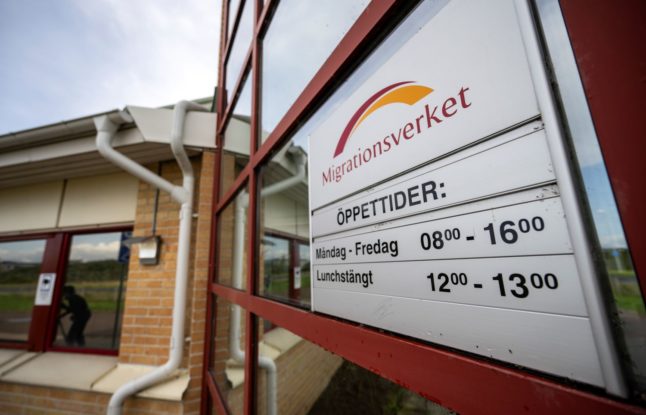According to Alejandro Firpo, who headed the agency’s work permit unit until his recent promotion, the agency was over-staffed when it was launched in 2008 following the introduction of new labour migration rules.
“We had expected more applications but because of the financial crisis that followed we didn’t receive as many as we had estimated,“ Firpo told The Local.
However, as the financial climate stabilised, the agency started receiving an increasing number of applications.
By 2010, however, the Migration Board was hit by an “explosive” rise in applications.
“It seems that more people found out about the law and we simply couldn’t keep up with the demand,” Firpo said.
The new rules from 2008 stipulated that individual employers rather than the Swedish Public Employment Service (Arbetsförmedlingen) decide whether there is a need to recruit foreign workers.
Under the new rules, immigrants are also able to receive an extended work permit for a maximum of four years, after which they can qualify for a permanent residence permit.
But delays in the processing times are causing grumbles among companies that need their staff faster than permits can be issued.
Sadek Yildic runs a recruitment agency supplying staff to catering companies specialising in foreign delicacies.
“We currently have 22 workers that have applied for a permit but are waiting for an answer. We are losing customers, time is ticking away and time is money,“ Yildic told news agency TT.
His lawyer Jan Axelsson, who has handled applications from more than 40 people from outside the EU, is also critical of the system.
“It’s completely useless. Imagine being offered a job and find yourself forced to tell your prospective employer: ‘Yes, I’ll be there. In 6 months’,” he said to TT.
But according to Firpo the delays are a thing of the past, the agency is managing to meet their targets despite a continuing increase in applications.
“Since last year we have a 40 percent rise in applications, but as it is looking right now we are getting more and more efficient,” he said.
Since 2010, the agency has both reshuffled their exiting resources and hired more officers to deal with work permits.
Firpo understands that companies need their workers fast but pointed out that delays often are due to incomplete applications rather than agency inefficiency.
When news agency TT told Prime minister Fredrik Reinfeldt, he expressed concerns about the lengthy processing times for Swedish work permits.
“Of course we hoped that this wouldn’t happen. We want this to be a non-bureaucratic and efficient system and we tend to recommend electronic applications,” he told TT.
Reinfeldt also pointed out that despite delays, he is of the opinion that the system is working well and that several thousand foreign workers so far have arrived in Sweden.
And according to Firpo it is the paper applications that take a long time to process.
“If it drags out, there is generally a good reason,” Firpo said.
A paper application has to be handled by the Swedish embassy in a given country before it reaches the Migration Board, a process which in itself can take several months.
If the application turns out to be incomplete, officers have to start tracking down the right people, as the board can’t approve an application without all the relevant information.
“But when it comes down to electronic applications we are back on track – it is a question of days and weeks from when an application is received to when the permit is issued,“ Firpo told The Local.


 Please whitelist us to continue reading.
Please whitelist us to continue reading.
Member comments